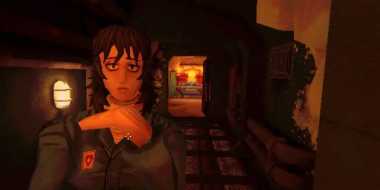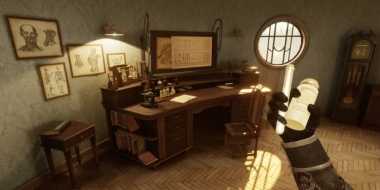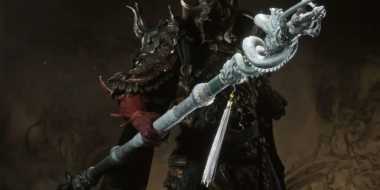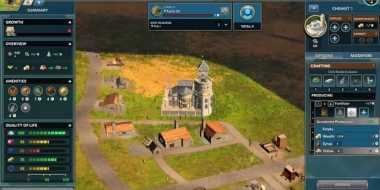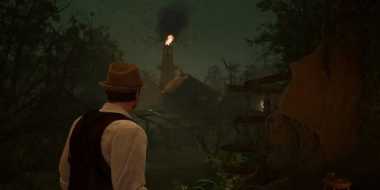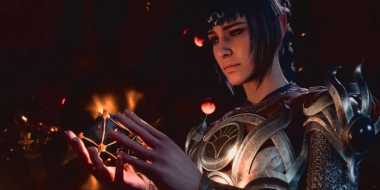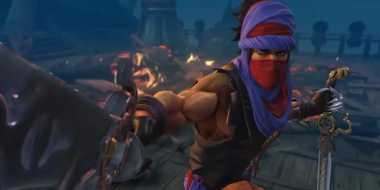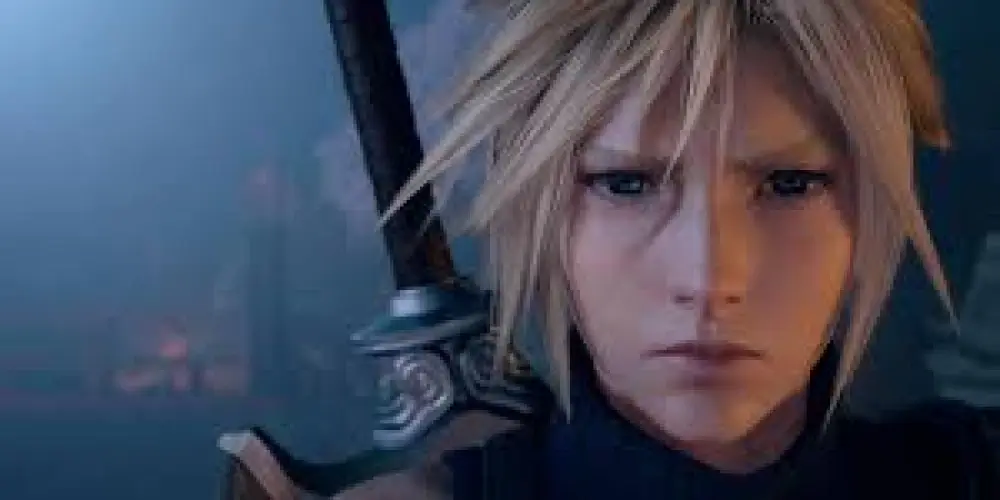

Final Fantasy 7 Rebirth: A Delicate Dance of Old and New
15/04/2024 Nova Pearson 1317
Remakes are a delicate art. Too many changes and you risk alienating a devoted fanbase; too few and fans question the effort’s worth. Final Fantasy 7 Rebirth, part of a new trilogy based on the beloved PlayStation classic, strikes a precarious balance between reverence for the original and bold reimagination. This game is not just a remake; it's a reinterpretation—a rebirth. But how does one balance the familiar with the novel? How far can the boundaries of this iconic story be pushed?
Developer: Square Enix
Publisher: Square Enix
Platform: Played on PS5
Availability: Out 29th Feb on PS5
These meta-narrative questions were first posed by Final Fantasy 7 Remake. In the game's new finale twist, Cloud and his team battled the physical embodiment of fate to forge a new destiny, signaling Square Enix's intent to diverge from the original script. In Rebirth, both the characters and the developers wrestle with the consequences of this choice, grappling with the ultimate question: why should this remake exist?
As someone whose first encounter with the Final Fantasy series was through FF7, a game that remains a personal favorite, I've struggled with these thoughts. Am I too protective of the original, too anchored in nostalgia? Should I lament the changes or embrace the new? Over time, I've come to appreciate the developers' ambition to craft a new experience rather than simply retell the same story.
Despite its fresh take, Final Fantasy 7 Rebirth remains fundamentally the same story, filled with science experiments, cover-ups, cosmic events, and conspiracy theories. However, it also introduces a plethora of new elements, attempting to expand on the original's legacy. This duality can be overwhelming, especially as the game tries to live up to the groundbreaking twists and turns of its 1997 predecessor.
But enough of the heavy stuff. Let's talk about Chocobo Racing. Upon reaching the Gold Saucer amusement park, this minigame unlocks, offering a game-within-a-game experience. With numerous tracks to race through, boost drifting, and special abilities, you can even customize your chocobo with cowboy hats and armors. It's a delightful, albeit easy, distraction that showcases the game's playful spirit.
This tonal shift is indicative of Rebirth's toy box nature—messy but lovable. The story continues with protagonist Cloud Strife and the eco-terrorism group Avalanche as they pursue the presumed-dead war hero Sephiroth and combat the Shinra Electric Power Company, which is draining the planet of its Mako energy. This allegory for fossil fuel consumption and environmental destruction remains as relevant as ever. For those who need a refresher, the game includes a recap video at the start, though Rebirth is not an ideal entry point for new players, despite Square Enix’s claims.
As part two of the remake trilogy, Rebirth begins shortly after the events of Final Fantasy 7 Remake, covering much of the original game's second act. It follows key story beats and locations, expanding them into lengthy episodes. The progression is linear, but the world is divided into six open areas connected by dungeons and events. This structure allows for exploration and side activities, fleshing out the game into a complete experience.
The result is a rich, detailed remake, generous to a fault. Besides Chocobo Racing, players can engage in numerous activities, from battling fiends and herding mischievous moogles to playing mini-games like Rocket League and Fall Guys. This constant reinvention keeps the game fresh, though it can also be distracting.
Take the Gongaga region, for example. In the original game, it was a small optional location. In Rebirth, it's a sprawling jungle with a Mako Reactor dungeon. Exploration is rewarded with various activities, from capturing chocobos to engaging in combat missions. These tasks, while sometimes repetitive, usually offer worthwhile rewards and add depth to the world.
More meaningful are the story-driven side quests tied to party members, which enrich their characterization and deepen relationships. The new relationship system makes feelings explicit, leading to moments like the famous Gold Saucer date scene. These quests can be unexpected and delightful, adding layers to the characters.
Visually, Rebirth is stunning. Familiar locations are lavishly recreated, from the luminous greens of the grasslands to the vibrant Mako energy in reactor areas. The music is equally impressive, with a diverse and catchy soundtrack that ranges from orchestration to heavy metal to infectious J-pop. The classic battle theme, woven into the score, is particularly moving.
The open world also allows combat to thrive, building on the action-strategy hybrid of Remake. Real-time attacks fill the ATB gauge, which is then used for abilities in a paused menu. The new synergy attacks reward frequent character switching with spectacular paired moves, adding a layer of strategy. The Materia system returns, allowing for customization, though it’s possible to enjoy the game without delving deeply into these mechanics.
Rebirth leans into the bizarre and flamboyant aspects of Final Fantasy 7. There are eco-terrorism and science experiments, but also talking animals, homoeroticism, and giant rideable chickens. The new card game, Queen’s Blood, is a standout addition, offering intense duels with increasingly outlandish opponents. This playful spirit infuses the game with humor and heart.
However, the abundance of mini-games and side activities can detract from the main plot’s urgency. While these distractions are fun, they can make the central narrative feel less pressing. Some moments are wonderfully modernized, like the Mythril Mines and Cosmo Canyon, while others unnecessarily elongate the plot and disrupt pacing.
The narrative structure is episodic, focusing on character vignettes that allow the ensemble cast to shine. However, this approach can lack drive, resulting in a series of moments building towards a climactic event. The constant teasing and foreshadowing can feel frustrating, as the plot alternates between progression and stalling.
Despite its flaws, Rebirth excels in character development and humor. It presents a likable cast, unafraid to embrace silliness and physical comedy. The characters’ interactions, filled with jokes and emotional moments, make them endearing. The game’s humor and heart balance its cosmological drama, offering warmth and tenderness amid the chaos.
In conclusion, Final Fantasy 7 Rebirth is an ambitious and uneven experience, but one that ultimately justifies its existence through its focus on character and world-building. It expands on the original, offering fans a deeper connection to the beloved characters and their story. Despite some divisive changes, Rebirth enhances the tone and mood of the original game, making it a world worth saving.
 Recent Blogs
Recent Blogs
Mouthwashing Review: A Twist ...
10/10/2024 3221
Pathologic 3 Announced with ...
08/10/2024 3020
Best Weapons in Black Myth: ...
06/10/2024 2239
Corporeal: A Horror Puzzle G ...
04/10/2024 1777
Ara: History Untold Review: ...
02/10/2024 2284
 Trending Blogs
Trending Blogs
Alone In The Dark Review
21/05/2024 3273
Larian Studios: Embracing N ...
05/08/2024 3256
Mouthwashing Review: A Twist ...
10/10/2024 3221
Pathologic 3 Announced with ...
08/10/2024 3020
Prince of Persia: The Lost Crown
25/05/2024 2990
